By Judith Vonberg, CNN
Countries around the world, not least the United States, are grappling with what is becoming the norm: an increasing number of people fleeing their homes because of conflict, persecution, poverty or climate change.(CNN)On World Refugee Day, 25.4 million people find themselves forcibly displaced and living in another country, more than double the population of Belgium.
In Europe, almost three years on from what became known as the refugee crisis, tens of thousands are stranded in camps, living hand to mouth on the streets of cities or under the constant threat of deportation.
In many cases volunteers have stepped in to fill the gaps left by states. CNN spoke to seven people across Europe, some of whom have given up partners, children and a stable life to support refugees, and to some of those they've helped.
The interviews have been edited for length and clarity.
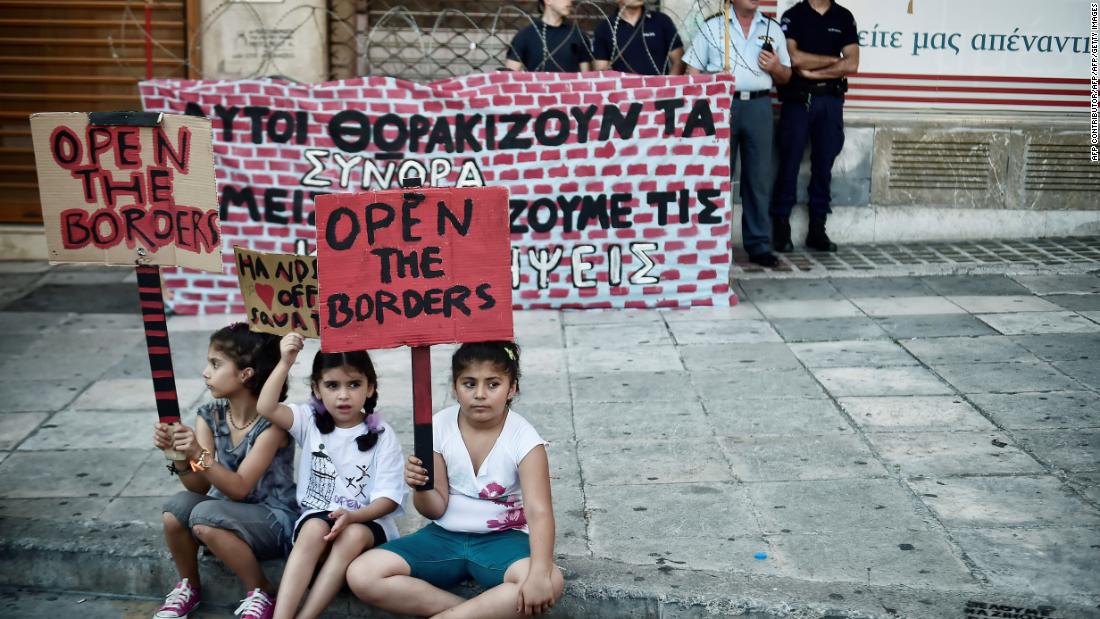
Refugee children in Athens call for safe routes out of Greece during a demonstration in June 2017.
'We were getting endless death threats'
Philippa Kempson has lived on the Greek island of Lesbos with her husband, Eric, and daughter Elleni since 2000. In early 2015, they began helping migrants and refugees arriving on the island's shores -- and haven't stopped since.
It was impossible not to be involved. When you're driving your child to school and you see children on the beach, you have to stop. There's always been refugees on the island, but first we thought, maybe we're not allowed to help, but when it started to become women and children, you couldn't go past them, you couldn't not stop. We were on our own doing this for months
We were having deaths nearly every day; there were people who had drowned and washed up on the beach, people with hypothermia. On October 28, 2015, we lost a boat with over 300 people on it. Only 242 were recovered alive. That morning we'd already lost two children -- they had come in with hypothermia and died on the shore.
Now we're getting more children arriving on the boats. Young boys, 14 or 15, are being sent on their own from Turkey. The parents don't want them to get caught up in conflict so they're sending the kids on their own.
The hotspot camp of Moria is made up of children these days... The official capacity is 3,000, but there are close to 8,000 people in this camp.
The treatment of people is out-and-out deliberate to stop people from coming. Well, it's not working out... People are dying daily. We've got children dying in Europe because we don't want to help people fleeing war -- it makes no sense to me.
We had to send my daughter away (to the UK) at the end of 2015 because we were getting endless threats, death threats, some from the local community, some from further afield... People are convinced that if we weren't here to help, the refugees wouldn't come.
My daughter was 17 by then and it was impossible to keep her safe. Sending her away is the hardest thing we've ever done. We came to Greece for a quiet life and to be able to be a family... Now we live with locked gates and cameras.
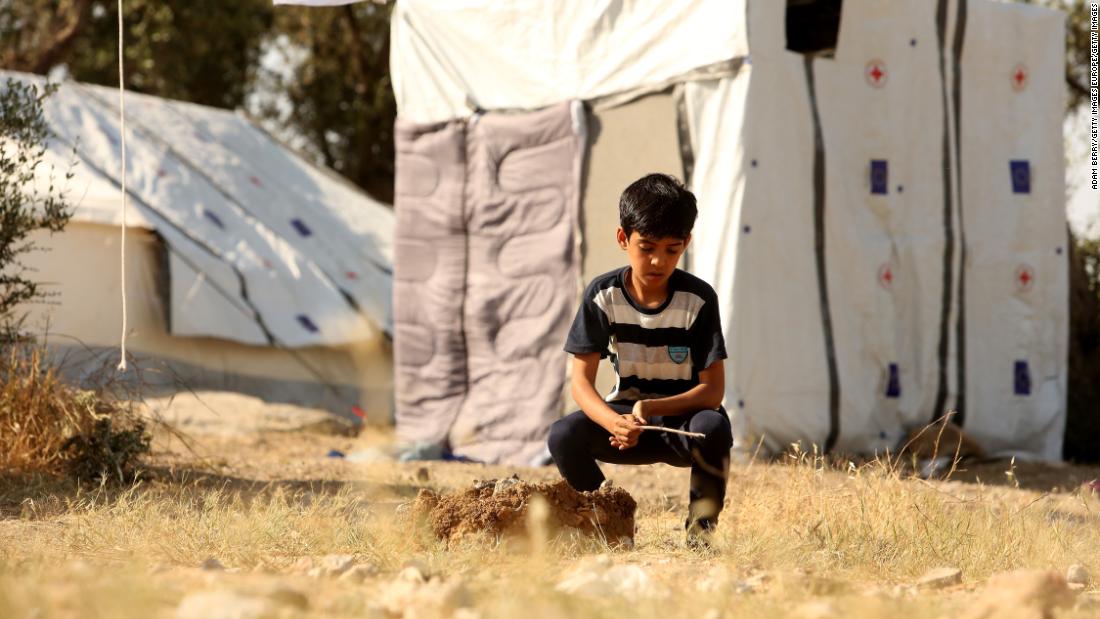
A refugee child plays alone at the Moria refugee camp on May 20, 2018, in Mytilene, Greece.
Sayed, 18, from Afghanistan, arrived in Lesbos 11 months ago and now helps out at a warehouse run by Kempson distributing clothes and hygiene products to other refugees. He's waiting for news on his asylum claim.
When I came, I thought, maybe I can find my future. Now I don't think so. I have Philippa but I have nothing else.
You cannot relax your mind for one night. I worry all the time. My mind is so bad; I think I need a doctor for my mind.
I want to leave here because it's not good for me... Maybe some people are kind but they treat us all the same. I am not a killer, I am not bad, I don't want anything from these people.
If I could leave, I wouldn't stay here for one more minute.
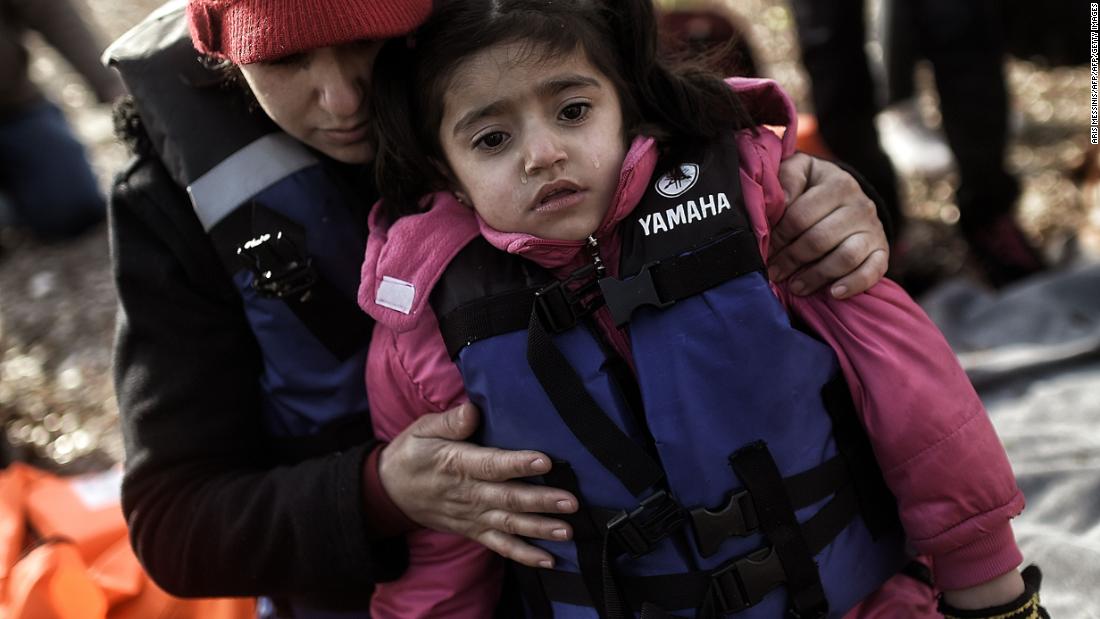
A woman hugs a young child as they arrive with other migrants on Lesbos in 2016.
'It felt like I died inside'
Anders Boklund runs several refugee homes for unaccompanied minors in the city of Gothenburg, Sweden. He used to be a social worker before starting to manage refugee homes in 2010.
The initial years of the refugee crisis, 2014-15, gave me hope. We were going in the right direction. We were taking responsibility.
But now, the way politics has gone, I am becoming more cynical. We went from everyone saying that this was an important issue -- the Swedish Prime Minister saying we all had to open our hearts -- to now, where you can't even say in politics that you are pro-migration because that means political suicide. Now it's a competition of who can present the harshest immigration policies.
It's sad. Nothing good will come out of this. It's turning into a competition. Everyone was afraid of the right-wing populists. Now, their policies are the ones that Social Democrats and other parties are in favor of.
Most of the (child refugees) are getting negative decisions. Most of them cannot prove that they are under 18, so they are getting tried as adults.
When they are 18 they leave our care, and they are the responsibility of the migration board. But none of them want to live with the migration services, so they turn out homeless, with drug problems, social unrest between the groups; what you can expect really, given what they've endured. And that is used by the populists.
This downward spiral has to stop... If we continue like this -- with no one wanting to take responsibility -- it is going to be a tremendous tragedy.
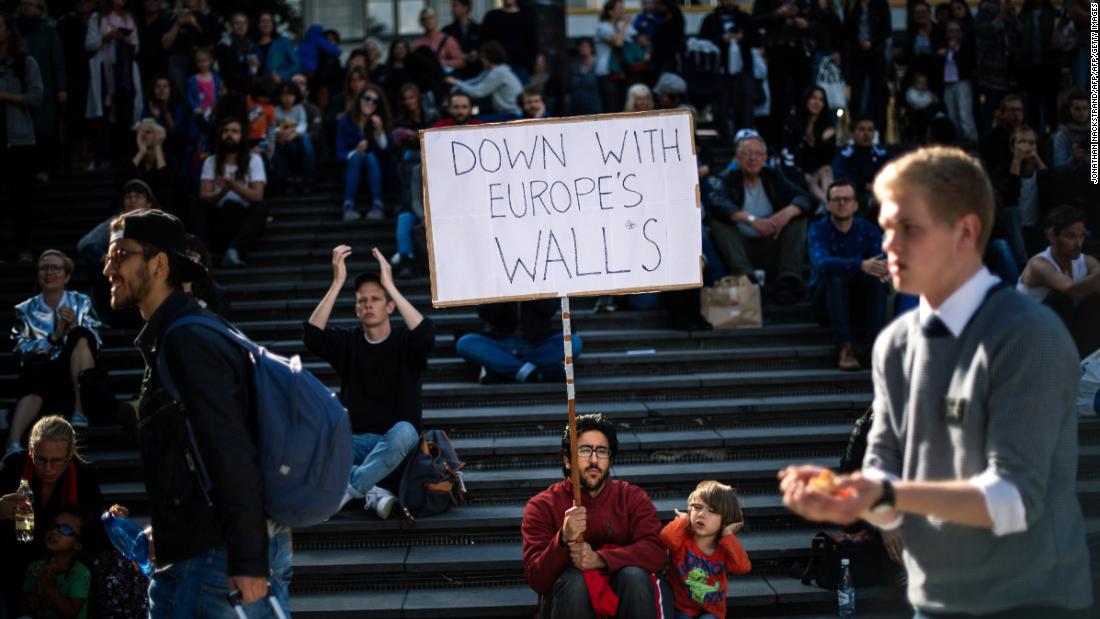
People in Stockholm show their solidarity with migrants in a rally in September 2015. Many people's attitudes in the country have since changed.
Barat left Pakistan for Sweden in 2015 when he was 16. After waiting three years for a final decision on his asylum claim, he was deported to Afghanistan and now works as a fruit seller back in his home city of Quetta, Pakistan.
I was extremely happy and full of hope (when I came to Sweden). I hoped for a better future without war.
I believed that (the Swedish authorities) would help us after listening to my life story and all of my problems. They just wanted to show that they were nice. They wanted to show the world that they were the nicest, but they weren't unfortunately.
The first rejection was the worst. It felt like I died inside; all my feelings, all my hope died. I started to cut myself. I became completely sick both physically and mentally.
(When I was deported to Afghanistan) It felt like I was going back to hell where I would be killed by terrorists.
I am scared still as I take huge risks just going to town and to work. I don't know when I might be killed in an explosion or an attack... What plans can you have in a country where death waits for you everywhere?
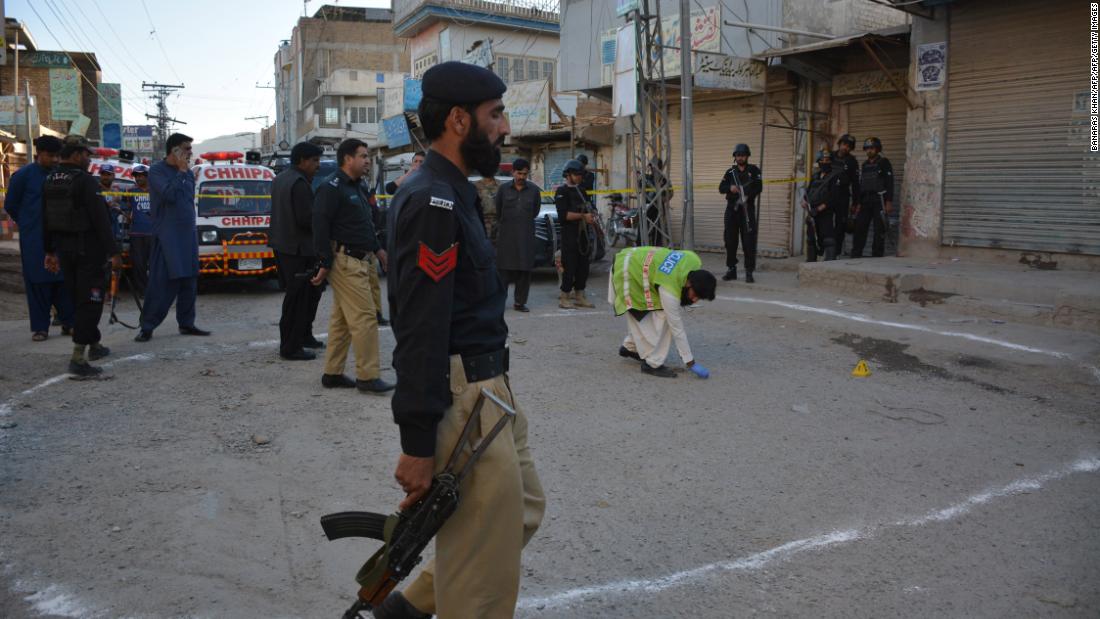
Barat now lives in Quetta, Pakistan, where he is fearful of attacks. On May 27, a shootout in the city left two officers and two militants dead.
'People are losing heart'
Cecelia Bittner, comes from New York but has volunteered with Refugee Community Kitchen since early 2016, serving hot meals to migrants and refugees in Calais and Paris, France.
I came (to Calais) just for two weeks in February 2016... and I'm still here. I had fallen in love with a cheese farmer in West Wales and I was living there. Then my British visa lapsed and I was waiting for a new one.
(After two weeks in Calais) I called the Welsh farmer and I said, I'm not coming back.
The Calais "Jungle" was a unique place. (The camp was cleared by authorities in October 2016.) It's like a festival in horrible conditions, but with the same sense of solidarity. My job was to go door to door around the tents and ask how many people needed food. People just kept inviting me in and feeding me tea. People just tried to give back whenever they could.
I saw grown men completely terrified, shuttled around, completely powerless with no idea what's going to happen to them.
They've (the authorities) always had this idea that if they make it horrible enough, people will leave. But a lot of these people have been through infinitely worse conditions. They've watched tons of people die around them across the Sahara, across the ocean.
It's wearing on people. We've had multiple suicide attempts at (food) distribution points recently. People are losing heart.
People are dying all the time on the borders throughout Europe... Our response right now is telling and will be remembered. Trump and the French state, (President Emmanuel) Macron, they're on the wrong side of history; people will look back on this the same way as they look back on World War II and they will be horrified.
READ MORE: Life after the Calais Jungle: One story's happy ending
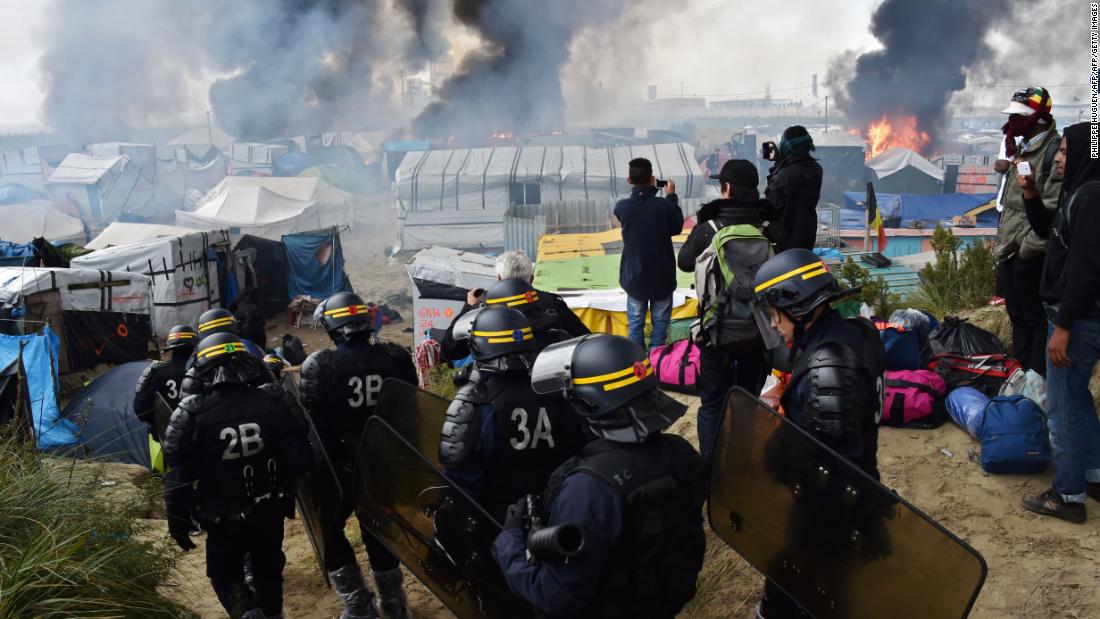
French anti-riot police officers arrive in October 2016 to clear the Calais "Jungle".
'People in distress are political game'
Ruben Neugebauer is one of the founders of Sea-Watch, a search-and-rescue organization working in the Mediterranean since 2015.
I had good luck to be born in Germany, in one of the richest countries in the world... I was born in 1989, when the Berlin Wall was breaking away, and raised in a time when the border was open.
One particular moment struck me. It was in July 2015, we were on the rescue boat Sea-Watch 2, and there were more than 1,000 people in distress. One girl, a 16-year-old, died after being rescued. Not by drowning, she died of exhaustion... We tried to reanimate her and we failed.
After she died, we were on the deck, sitting there, some of us crying. We were flying the ship's flag at half-mast, the only thing you can do in that moment.
When we started, there were people saying "we cannot let people die" and organizations like ours were praised for saving lives. Now, with populists on the rise in Europe, everything has changed. Right now, people in distress are political game for them in a way that it wouldn't have been possible three years ago. They're gambling with human life, and Europe doesn't take responsibility.
READ MORE: A migrant ship's fate symbolizes a divided Europe
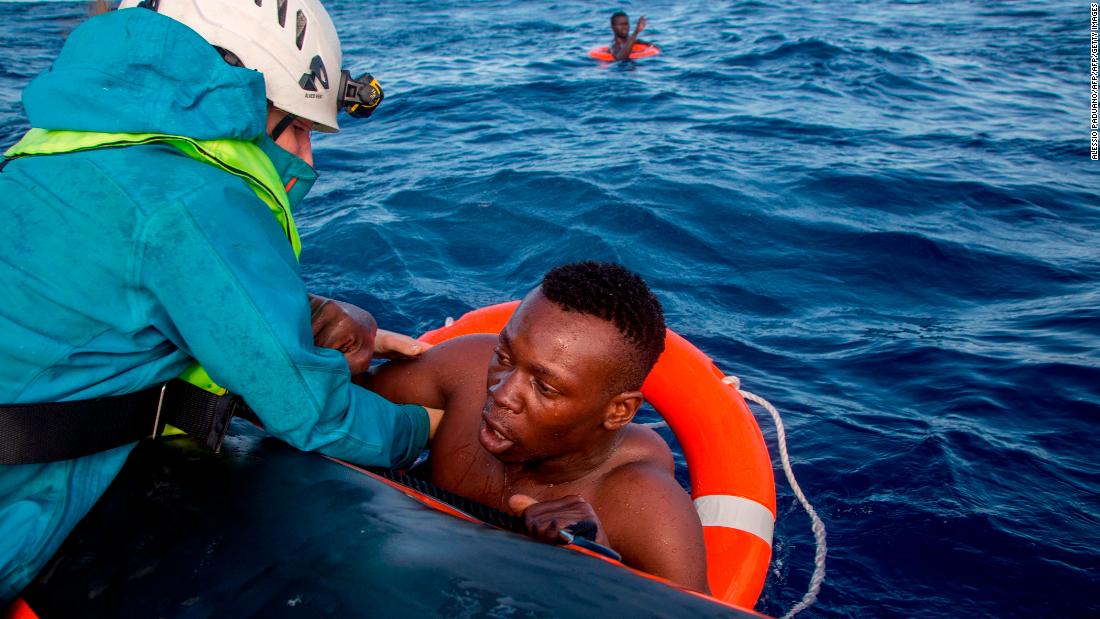
A member of Sea-Watch helps a migrant to board a boat after he was recovered in the Mediterranean on November 6, 2017. Five people died during the shipwreck.
'A deep and solid bond'
Bernadette Koopmann has been mentoring the Mohammadi family since their arrival in the German town of Altena in 2015. Her role as mentor evolved into a bond of friendship -- she was with them when their youngest daughter was born and cried with them on learning that their refugee status was rejected last year.
The experience has enriched my life. When I gave the language course, I caught myself thinking, I can't do it, I'm too busy... but I always had and still feel a sense of joy when helping them. They left their war torn country and came here. I feel at peace when I offer my help to them.
One difficulty is to manage all our emotions... The administrative courts are overwhelmed in Germany with the complaints of asylum rejections -- the rejection status of my family and the subsequent appeal has not changed since 2017. They are still waiting. That makes the family depressed and it is difficult for me as well. For them it is the battle of daily uncertainty: Are we going to be deported?
There are reports on television showing deportations... They ask: do we need to leave again? That makes me sad too. I have built a deep and solid bond with this family.
READ MORE: Through Germany's open door: What life is really like for refugees
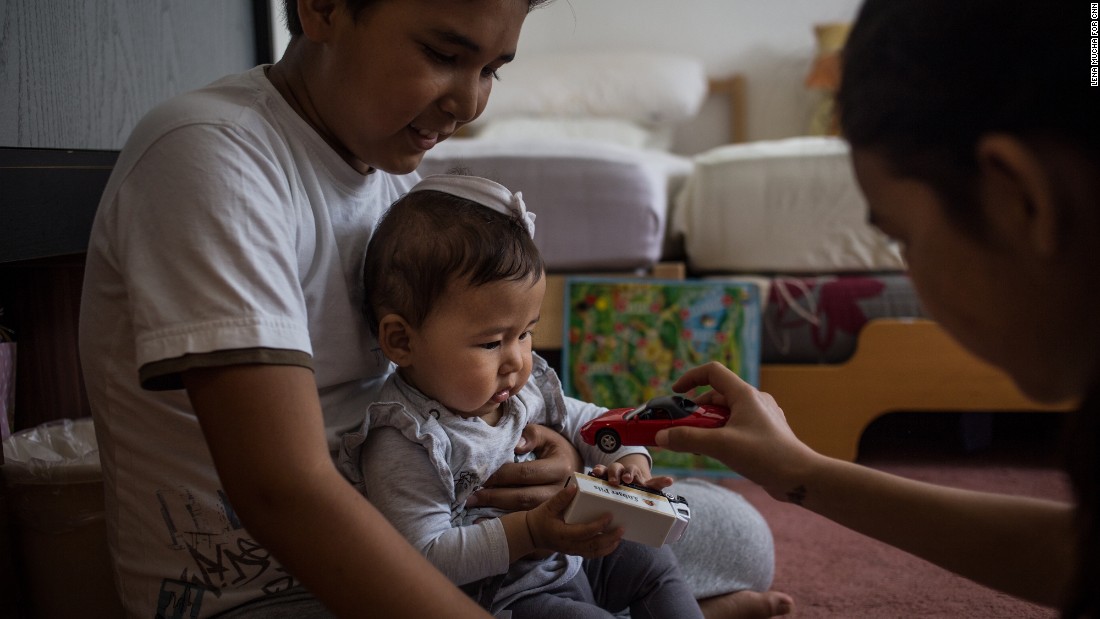
At their home in Altena, Yalda, 8 and Omit, 8, play together with 9-month-old Elena, all members of the Mohammadi family.
'Our mission is to save lives in the mountains'
Simone Bobbio is a volunteer rescuer in the Italian Alps. Usually, he and the other volunteers rescue skiers or hikers, but since last September, more migrants have been attempting to cross through the mountains into France from Italy -- and some don't make it.
Our first migrant rescue mission took place on September 27, 2017, when a migrant was found along the paths towards France with a broken thigh bone.
Around 88% of the people we rescue every year are practicing leisure or sports activities. The rest are living or working in mountain areas. In the case of migrants we were faced with people risking their lives -- one dead body was in fact found last April when the snow melted -- while trying to escape towards France in search of better living conditions.
For us and for those we normally rescue, mountains are the environment we love, a passion that justifies the objective risks we encounter when we practice mountain activities. For the migrants they represent one of the dangerous barriers separating them from their life aspirations.
In a hostile environment like the mountains, conditions are difficult for everybody and life is fragile so everybody has the responsibility to help others because anyone could find himself in need.
No matter our political and social views, our mission is to save lives in the mountains.
READ MORE: Snow may hide dead migrants on Alps route
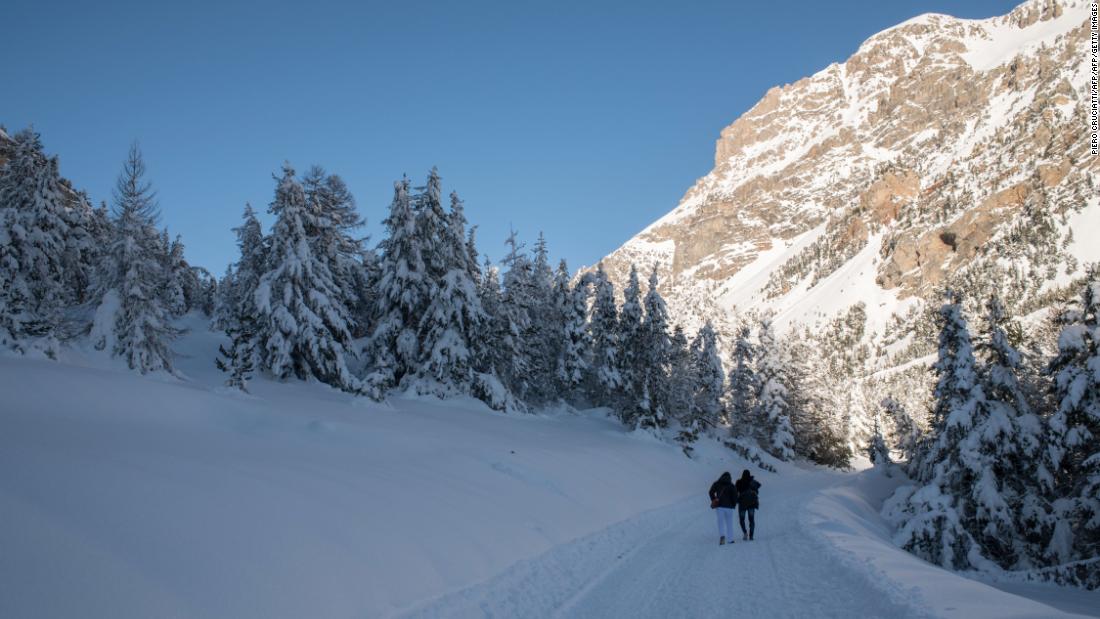
Migrants from Ivory Coast walk in the snow on their way to a snow-covered pass near Bardonecchia in January 2018.
'Go back to where you came from'
Nina Kaye wanted to start hosting refugees after her two adult sons moved out, leaving her and her husband, Timothy, alone. They couldn't find an organization that did that, so in 2015 they set one up themselves called Refugees at Home in Epsom outside London, England.
Perhaps I wanted to help because my own mother was a refugee from Austria. She had to travel on her own to Stockholm when she was 13 -- so I'm the product of a refugee.
We've always been aware of the plight of what's going on with refugees... and we've always thought: there but for the grace of God go any of us. They're people just like you and me.
We've encountered the hostile environment that (UK Prime Minister) Theresa May started -- and has now admitted. And I think it is getting harder (for refugees). It's like going into a brick wall with the Home Office -- there's just no response at all.
Habib, one person who stayed with us, had been put into accommodation that was beyond disgusting. He was told: if you don't like what we're offering you can go back to where you came from. It makes me so angry that people are treated this way.
We can't make a difference to the whole crisis, but if we can help one person for one night, that's better than nothing.
CNN's Saskya Vandoorne, Gianluca Mezzofiore, Rory Smith, Nadine Schmidt and Eliza Mackintosh contributed to this report.
Source: CNN >>>
